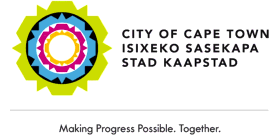You may also like...
Boxing Titans Collide Again: Mayweather vs. Pacquiao Rematch Buzz

Boxing legends Floyd Mayweather Jr. and Manny Pacquiao are set for a highly anticipated rematch on September 19 at the S...
UCL Drama: Juventus Star's Bold Promise After 'Tragic' Osimhen Error

Juventus faces a tough challenge in the Champions League second leg against Galatasaray after a 5-2 first-leg loss. Defe...
Sundance Shake-Up: Prestigious Film Festival Unveils New 2027 Dates and Boulder Debut

The Sundance Film Festival is relocating to Boulder, Colorado, for its 2027 edition, scheduled from January 21-31. This ...
BAFTA Under Fire: Major Awards Body Launches Review After Damaging N-Word Incident

BAFTA has responded to the N-word controversy at its recent Film Awards, involving Tourette's syndrome activist John Dav...
Shocking Cancellation: 2026 La Onda Festival Scrapped After Lineup Reveal

The 2026 La Onda Festival in Napa, California, has been unexpectedly canceled just weeks after announcing a star-studded...
Star-Studded Showcase: Kravitz, Maroon 5, Ozuna & Yandel Lead 2026 Starlite Occident Marbella

The Starlite Occident Marbella festival has unveiled its initial 2026 lineup, featuring headliners like Lenny Kravitz, M...
Cape Town's Kirstenbosch Garden Blooms onto World's Most Beautiful List!

Cape Town's Kirstenbosch National Botanical Garden has been globally recognized by Homes & Gardens as one of the Most Be...
Mozambique's National Carrier LAM Soars Towards Revival with Ethiopian Airlines Power

Mozambique's government is in discussions with Ethiopian Airlines to restructure its national carrier, LAM, focusing on ...